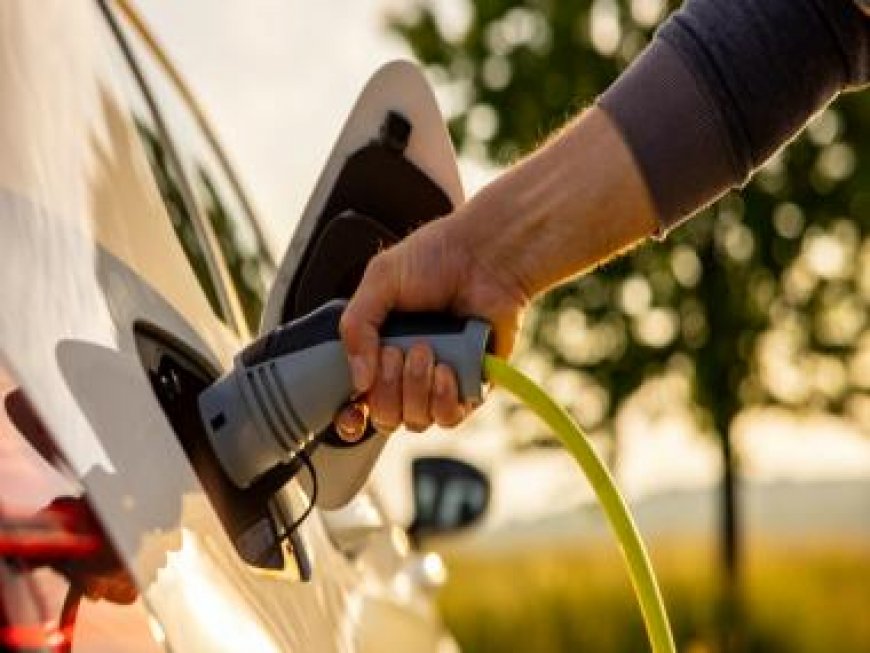Explained: What is lithium iron phosphate and why are EV manufacturers going crazy over it
Explained: What is lithium iron phosphate and why are EV manufacturers going crazy over it

In recent years, the electric vehicle (EV) market has witnessed a surge in the adoption of Lithium Iron Phosphate batteries. This remarkable shift has intrigued many, prompting the question: why are car makers so keen on using Lithium Iron Phosphate instead of traditional materials like nickel and cobalt?
As the automotive sector races to manufacture electric vehicles at lower costs, the batteries, which represents the most expensive components, have become a focal point.
Lithium iron phosphate (LFP) has emerged as the preferred material for EV batteries. The increasing preference for LFP can be attributed to several factors, including environmental and geopolitical considerations. Additionally, advancements in technology have narrowed the performance gap between LFP and commonly used materials like nickel and cobalt.
Understanding Lithium Iron Phosphate
Lithium Iron Phosphate is a type of rechargeable battery that falls under the category of lithium-ion batteries. It is composed of lithium iron phosphate as its cathode material, hence its name. Unlike other lithium-ion chemistries, lithium iron phosphate offers distinct advantages that have garnered significant attention in the EV industry.
Advantages of using Lithium Iron Phosphate
Safety: Safety is a primary concern for EV manufacturers, and LFP excels in this aspect. Compared to nickel and cobalt-based chemistries, LFP is inherently more stable, less prone to thermal runaway, and has a lower risk of catching fire or exploding during charging or discharging events.
Enhanced Thermal Stability: LFP exhibits superior thermal stability, allowing it to operate in a wider temperature range without compromising performance. This makes LiFePO4 batteries more reliable and suitable for extreme weather conditions.
Longer Lifespan: LFP batteries have a significantly longer cycle life compared to traditional lithium-ion batteries. They can endure a greater number of charge-discharge cycles without substantial capacity degradation, making them highly durable and cost-effective over the long term.
Higher Power Density: LFP batteries can deliver high power output, enabling rapid charging and discharging. This characteristic makes them particularly suitable for applications that demand quick acceleration and regenerative braking, such as electric vehicles.
Environmental Friendliness: LFP batteries are more environmentally friendly than nickel and cobalt-based alternatives. The raw materials used in LFP production are abundant and widely available, reducing the environmental impact associated with mining and extraction.
Implications for the EV Industry
The growing adoption of LFP batteries in the EV industry signifies a significant shift towards safer and more sustainable energy storage solutions. By prioritizing safety and reliability, car manufacturers are ensuring that EVs become a mainstream choice for consumers.
Moreover, the reduced reliance on nickel and cobalt brings economic advantages, as these materials are often expensive and can be sourced from politically unstable regions. LFP’s abundant and widely available raw materials offer a more stable supply chain, reducing potential price volatility and supply chain disruptions.
The Future of Sustainable Transportation
As the EV market continues to expand, the use of lithium iron phosphate batteries is likely to become more prevalent. The inherent safety, longer lifespan, and environmental benefits of LFP make it an attractive option for car makers. By leveraging LFP’s advantages, the automotive industry can contribute to a more sustainable future by reducing dependence on fossil fuels and minimizing environmental impact.
Lithium Iron Phosphate has emerged as the favoured choice for car manufacturers in the realm of EV battery technology. Its safety, enhanced thermal stability, longer lifespan, higher power density, and environmental friendliness have positioned it as a compelling alternative to nickel and cobalt-based chemistries. As the world moves towards sustainable transportation, LFP batteries are poised to play a crucial role in powering the future of electric mobility.
This article was generated using Artificial Intelligence.
Read all the Latest News, Trending News, Cricket News, Bollywood News,
India News and Entertainment News here. Follow us on Facebook, Twitter and Instagram.
What's Your Reaction?

























































